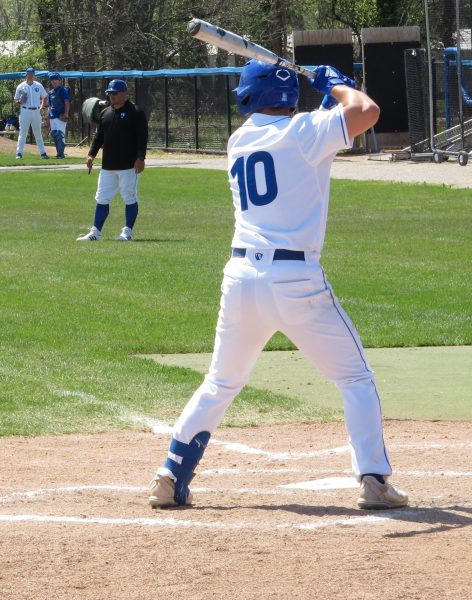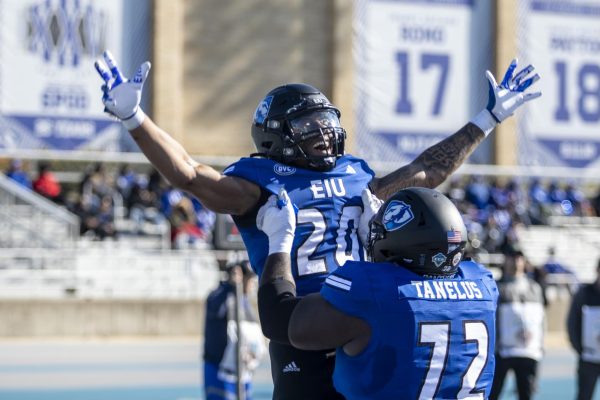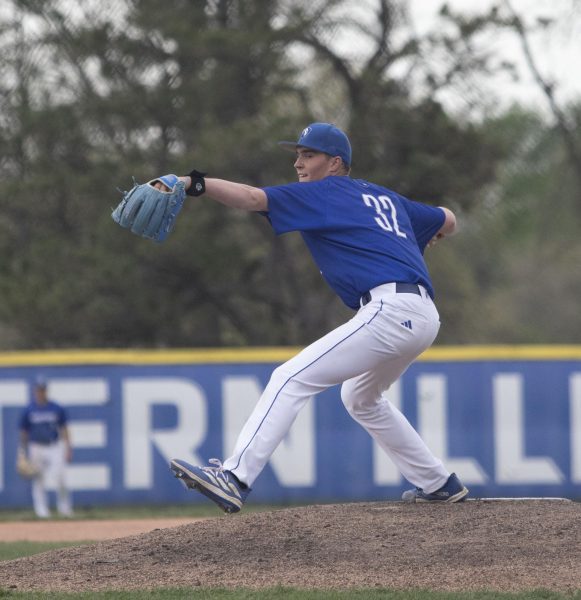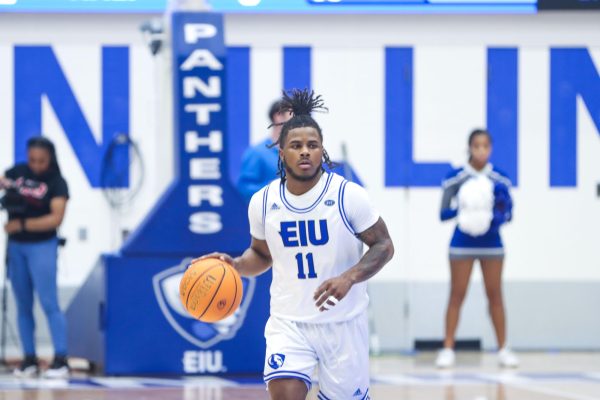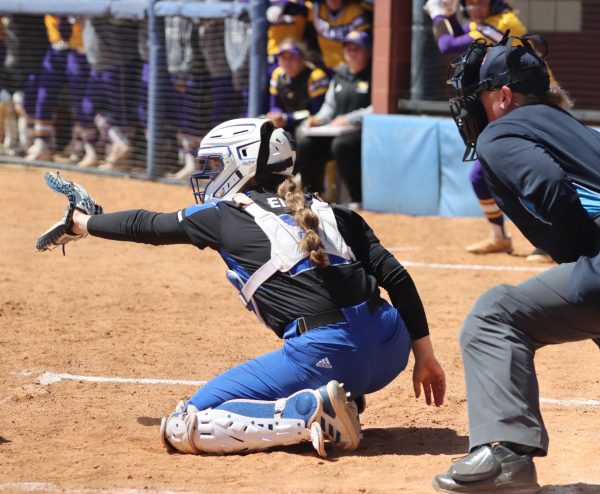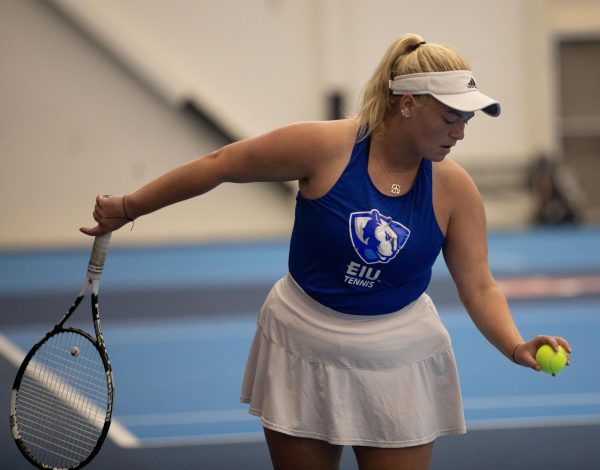Taking charge of the net
One day before what Eastern tennis coach Brian Holzgrafe considers the biggest win in the team’s recent history, their No. 1 player junior C.J. Weber wasn’t even sure if he would be able to play.
“We didn’t play until that evening,” coach Holzgrafe said of the Jan 31 match against Marquette. “At the last minute he decided to play doubles, and then later he decided to play singles.”
Weber was fighting a multitude of injuries, including a sore abdominal muscles, an aching shoulder, elbow and cramping, making him doubtful for the big match against Marquette.
“I cramped up that match and couldn’t even walk that night,” Weber said. “I took the entire next day loosing up my legs as much as possible. My legs were still really tight and I was stiff and sore.”
Weber fought through the injuries and ignored the fact he was trailing against Marquette’s number one player Eigintas Vendrickas 5-4 with match point to come back to help propel the team to victory. Eastern’s No. 2 player, Brandon Blankenbaker, was on the other court, also trailing 5-4 before both went on to win their individual matches helping the Panthers defeat Marquette.
“It was just a big match for our team ,and I needed to do everything in my power to help my team win,” Weber said. “It is my responsibility to show everyone, no excuses, you always to give 100 percent. I’m just going to do my best.”
Weber wasn’t alone in the victory; he had his teammates supporting him.
“C.J. and I left on the court; we were both down 5-4 in the first set,” Blankenbaker said. “The whole team got him all pumped up. Whenever we get behind, all the guys off the court helped him pull through it.”
Weber’s path was not typical of most students who play NCAA Division I college tennis. Weber, from Teutopolis, had trouble finding competition. He spent several hours hitting balls by himself without the benefit of having a tennis pro or much competition in his surrounding area.
“Tennis isn’t very big (where I’m from) so finding competition was always a problem,” Weber said.
Because tennis wasn’t big in his area Weber had to travel to other areas looking for competition.
“Basically, growing up in a small town, I had to motivate myself,” Weber said. “It’s not always fun to hit balls on the ball machines with no one else there. The thing that kept me going was my motivation to play D-I tennis and professional tennis.”
In collegiate tennis, Weber has had his fare share of setbacks, including a match against the University of Tennessee-Martin last season where he stretched his Achilles tendon last season.
“I learned to appreciate playing more,” Weber said. “It made me realize that I have to capitalize on every opportunity I get now and that I could break my leg or turn my ankle in any match.”
Weber used the newfound prospective and played in the Intercollegiate Tennis Association. The ITA included players from all over the country.
“In the regional tournament I ended up making it to the semi-finals,” Weber said. “I played against some of the best college and professional players in the world. That helped maintain my focus that tennis is something that I may want to pursue after college in the professional ranks.”
Weber not only excels on the tennis court, but also in the classroom with a 4.0 GPA in his major of psychology.
“As far as budgeting my time, the biggest thing is time management and another thing is communication with professors because I have to miss a lot of classes with away messages. That way they understand my situation.”
Coaches and teammate credit him with leadership qualities.
“He always takes it to the limits,” Holzgrafe said. “That kind of has an influence on the team’s motivation. In the past ,we had the players that are top caliber players but because of the lack of their leadership it dissolves the moral. He sets precedent and supports everyone on the team.”
Weber’s teammate and doubles partner Blankenbaker agreed.
“At practice he is always is working hard; when he works hard everyone else is going to work. He basically leads by example. He doesn’t really have to say too many words just by actions.”






































